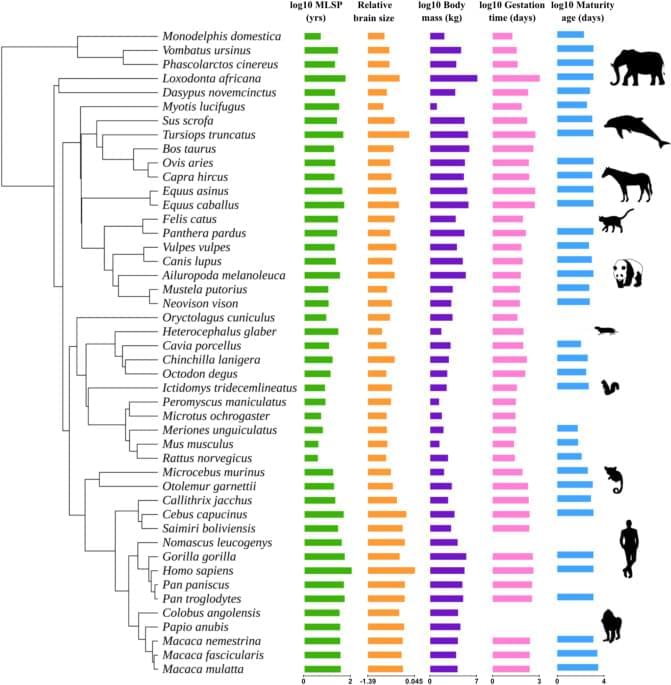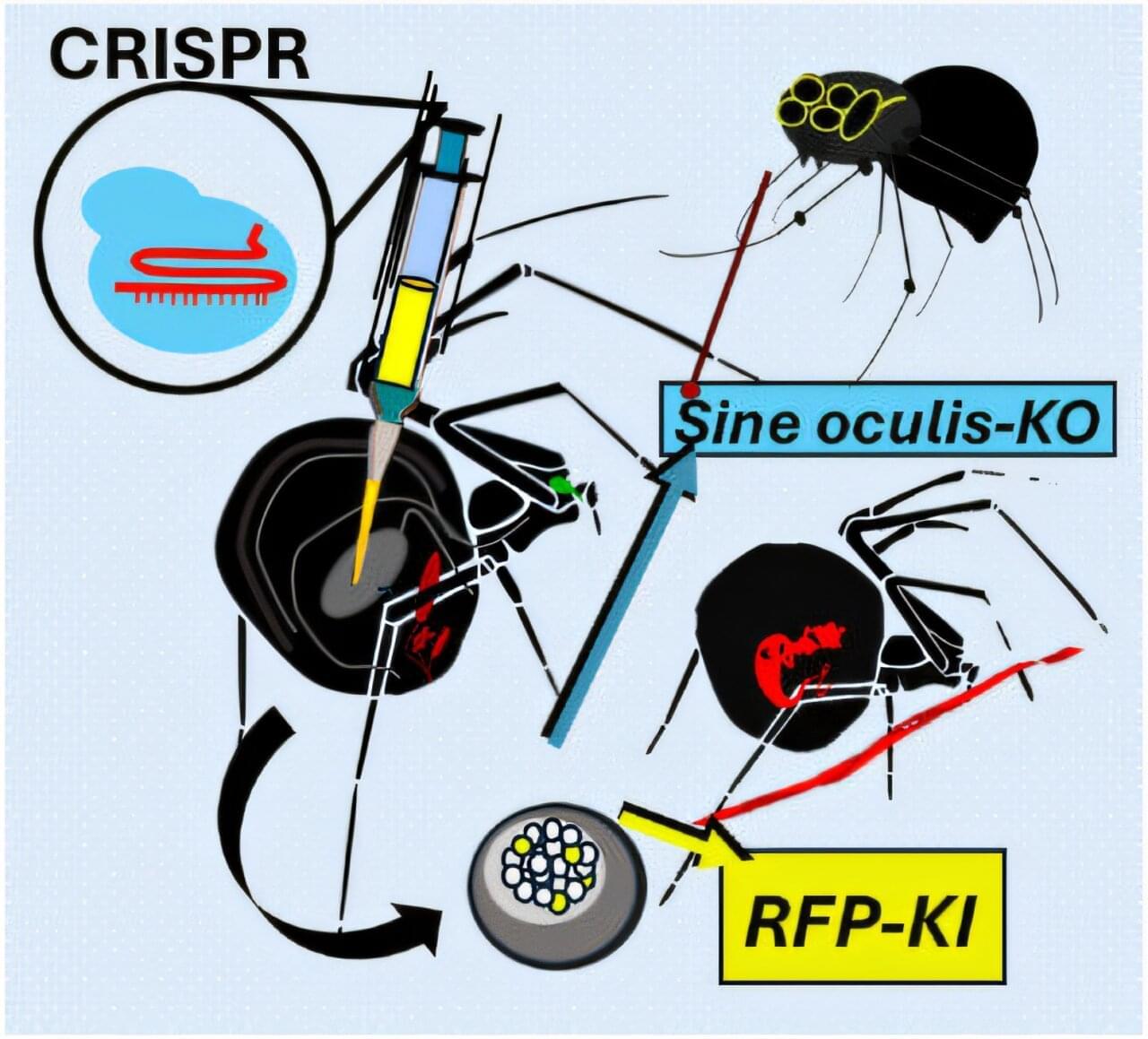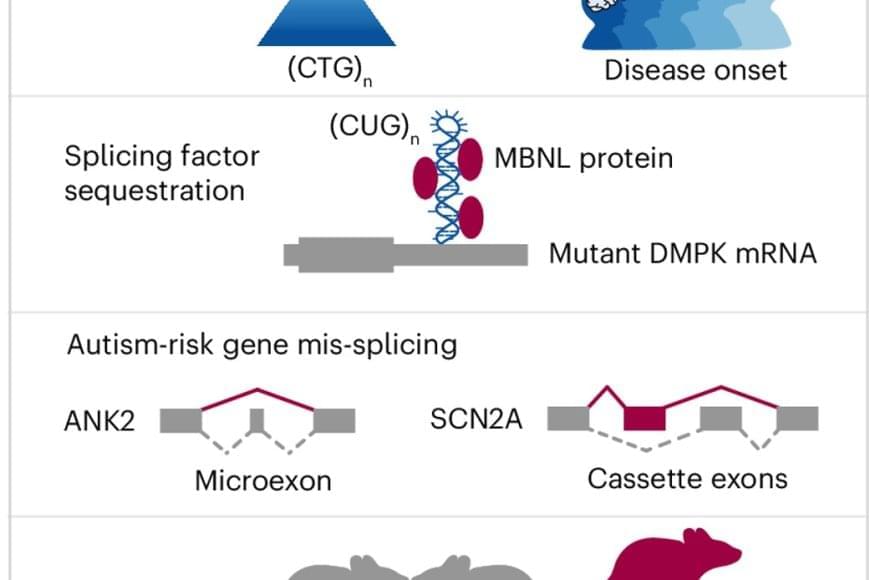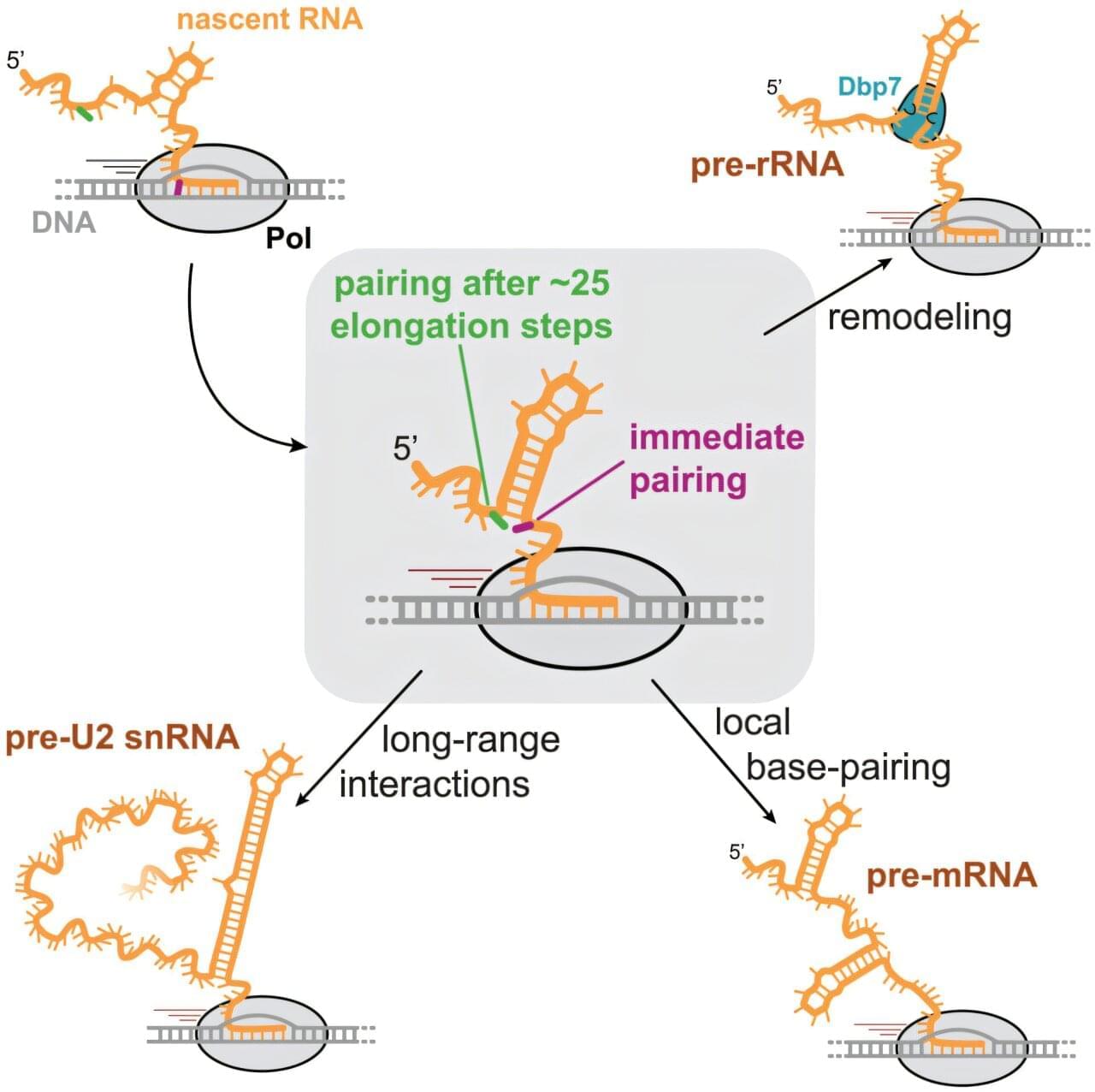Scientists have developed an AI algorithm that can identify different types of neurons from brain activity recordings with 95% accuracy—without needing genetic tools.



Kilili, H., Padilla-Morales, B., Castillo-Morales, A. et al. Sci Rep 15, 15,087 (2025). https://doi.org/10.1038/s41598-025-98786-3

The University of Bayreuth’s Biomaterials research group has, for the first time, successfully applied the CRISPR-Cas9 gene-editing tool to spiders. Following the genetic modification, the spiders produced red fluorescent silk.
The findings of the study have been published in the journal Angewandte Chemie.
Spider silk is one of the most fascinating fibers in the field of materials science. In particular, its dragline thread is extremely tear-resistant, while also being elastic, lightweight and biodegradable. If scientists succeed in influencing spider silk production in vivo—in a living animal—and thereby gain insights into the structure of the dragline thread, it could pave the way for the development of new silk functionalities for a wide range of applications.

A recent discovery of a molecular connection between autism and myotonic dystrophy, a type of neuromuscular disease, may provide a breakthrough on how clinicians approach autism spectrum disorder.
The new study by an interdisciplinary team of biomedical scientists, published in Nature Neuroscience, used myotonic dystrophy as a tool or model to learn more about autism – effectively using one disorder to better understand the other.
“We identified a new pathway that can lead to autism,” said the research lead. “We found that a genetic mutation in a certain gene can disrupt the expression of multiple autism-related genes during brain development, causing autism.”

So size does matter?
Mammal’s lifespans linked to brain size and immune system function, says new study.
The researchers looked at the maximum lifespan potential of 46 species of mammals and mapped the genes shared across these species. The maximum lifespan potential (MLSP) is the longest ever recorded lifespan of a species, rather than the average lifespan, which is affected by factors such as predation and availability of food and other resources.
The researchers, publishing in the journal Scientific Reports, found that longer-lived species had a greater number of genes belonging to the gene families connected to the immune system, suggesting this as a major mechanism driving the evolution of longer lifespans across mammals.
For example, dolphins and whales, with relatively large brains have maximum lifespans of 39 and up to 100 years respectively, those with smaller brains like mice, may only live one or two years.
However, there were some species, such as mole rats, that bucked this trend, living up to 20 years despite their smaller brains. Bats also lived longer than would be expected given their small brains, but when their genomes were analysed, both these species had more genes associated with the immune system.
The results suggest that the immune system is central to sustaining longer life, probably by removing aging and damaged cells, controlling infections and preventing tumour formation.

When RNA molecules are synthesized by cells—a critical process in the creation of proteins and other cellular functions—they typically undergo a series of “folding” events that determine their structure and the role they will play in expressing genetic information in living organisms.
Until recently, however, not much was known about these folding processes that occur very early in the life of RNA molecules.
But Yale researchers have now developed a method to map and measure the structure of RNA as it develops, an advance that may help scientists design more effective treatments for a host of diseases. Their findings are described in the journal Molecular Cell.
Join us on Patreon! https://www.patreon.com/MichaelLustgartenPhD
Discount Links/Affiliates:
Blood testing (where I get the majority of my labs): https://www.ultalabtests.com/partners/michaellustgarten.
At-Home Metabolomics: https://www.iollo.com?ref=michael-lustgarten.
Use Code: CONQUERAGING At Checkout.
Clearly Filtered Water Filter: https://get.aspr.app/SHoPY
Epigenetic, Telomere Testing: https://trudiagnostic.com/?irclickid=U-s3Ii2r7xyIU-LSYLyQdQ6…M0&irgwc=1
Use Code: CONQUERAGING
NAD+ Quantification: https://www.jinfiniti.com/intracellular-nad-test/

Ribonucleic acid (RNA) molecules may be best known for their job ferrying the genetic information encoded in DNA to a cell’s protein factories, but these molecules aren’t just a middleman for protein production. In fact, some RNA molecules don’t code for proteins at all and serve various other important functions in cells, such as regulating gene expression and catalyzing chemical reactions. However, the functions of many non-coding RNAs remain mysterious.

In research published in New Phytologist, investigators reveal that tomato ripening is regulated by the same mechanism that contributes to humans’ and animals’ life-and health spans.
The mechanism, called autophagy, regulates cellular recycling and operates in all lifeforms apart from bacteria. This latest work shows that autophagy affects tomato fruit ripening by controlling the production of ethylene. Ethylene is the primary hormone that controls ripening in many fruits such as apples, bananas, mangoes, avocados, and tomatoes.
To assess the role of autophagy in ripening, the team of researchers from the Volcani Institute, in Israel, and the University of Tübingen, in Germany, generated tomato plants that allow a temporal genetic repression of autophagy, specifically in mature non-ripe fruits.
